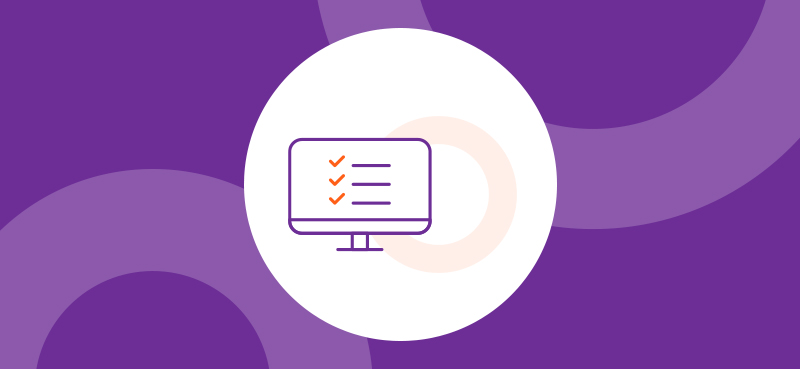Attempting the TOEIC at Master level
There is a wide array of academic language tests both universities and firms can expect you to pass to enable them to evaluate your English level, even more so once you enter the Master stage: between the IELTS, the TOEFL, and the TOEIC, one could get lost! No need to worry, though: we’re here to break down what you’ll need at Master level. Note that the TOEIC is also a great recruitment tool, so you can use it for applying to some companies.
Quick memo: What is the TOEIC and why not choose the TOEFL or the IELTS instead?
The TOEIC (Test Of English for International Communication) is an English exam used to evaluate an individual’s ability to evolve in an English-speaking professional environment. The test is used in more than 150 countries and 7 million candidates pass it every year. There are several kinds of TOEIC, but by far the most used is the TOEIC Reading & Listening.
This test is recognised internationally, be it from firms or colleges. It is valid on a 2-years period, after which your score won’t be considered by firms and colleges [to the same extent]. The test comprises 200 multiple-choice questions in 2 separate parts for a global score of 990 possible points.

To help you in assessing your score, know that above 550 points, you’ll be considered an average English user with a B1 level: you will need to get more than 785 points to pass the B2 stage and reach 945 points to be deemed an autonomous, C1 level user.
In France, the TOEIC is often recommended by most schools and colleges in the context of trips abroad for an internship or a school exchange. Unlike the IELTS or the TOEFL aimed at more general subjects, the TOEIC has an edge in that it tests for English competencies within a professional environment. This explains why the test is favoured by firms, but also by universities during the Master stage, both because internships will bring you to work with firms more often and because at this point, colleges deem you able to work with more specialised technical terms, closer to the professional world.
Why take the TOEIC to study abroad?
More and more students want to begin or resume their studies abroad. Countries where you find the largest number of foreign students are, with little surprise, English-speaking countries such as the United States, Great Britain , Australia or Canada. Nowadays, colleges such as these require you to demonstrate their English level, as they cannot welcome you without checking you’re comfortable with Shakespeare’s tongue first. Indeed, the university of UQAM in Canada Montréal requires to take te TOEIC exam.

As such, an official score is required by most colleges -by most firms, even. But why relying on a score? Simply because a score is much more telling than answering to a vague question: Do you speak English well enough to follow our courses?
The TOEIC test awards you a score evaluating your competencies in English expression and comprehension.
The higher your score will be, the more it will be appreciated by colleges. Indeed, most universities expect a minimum score to the TOEIC in order to ensure that you’ll be able not only to follow the courses abroad, but also to communicate with your Professors, fellow students and adjust well to your new environment.
The score you’ll obtain at the TOEIC will also largely determine where you’ll end up abroad. Indeed, universities’ expectations in terms of score vary considerably. While a renowned university in the States which is triply accredited with EQUIS, AMBA or AACSB will likely require a score superior to 850 points, a less-renowned European college with lesser accreditation, on the other hand, will expect a score nearing 700 points. Grades are not the only criterion anymore: if your TOEIC score is superior to someone with similar grades, you will be the one accepted in the college.
Noteworthy: the test is recognised in more than 8500 third-level schools across the world, which explains its popularity among students in particular.
Which universities accept the TOEIC?
Most universities -in particular American, English or Australian ones- accept the TOEIC; but it’s also accepted by many other colleges such as French universities offering English courses, or other international universities offering such courses.
The TOEIC isn’t the only test accepted by colleges, but it’s usually the most appreciated. Engineering schools in particular demand this test, without with students won’t graduate from the school.
However, there is no international consensus on the minimum score deemed sufficient to obtain at the TOEIC: each college has its own criteria. French universities such as ESSEC or HEC expect very high scores from students seeking to join them at Master level when coming from other schools.

Here are some example of universities requiring the TOEIC from students seeking to study there: Boston University, USA; University of Westminster, UK; The American University of Paris, France; Fukuyama City University, Japan; and many others such as in Canada, Ireland, Germany and Korea.
How will the TOEIC help me to improve my English?
The TOEIC will test your English level. Just like any other time you pass a test, be it an academic one or not, a thorough training is needed in order to obtain the expected results. A preparation for the TOEIC will thus be necessary as well. For such a test, beware of procrastination: fix a goal to attain and give yourself all the chances to succeed.

You have by now invested a significant sum into this test, you’re daydreaming to study in California in your favourite university: it is now time to check your English competencies and try to improve them at best to face the exam with the most confidence. Often, preparing for an exam encourages you to work on your weak points and revise some grammar or conjugation points. There are various means to improve your level for the TOEIC, such as Internet websites or applications available on smartphones. Courses are also given by the ETS, the Educational Testing Service, the institution running the TOEIC. These courses allow people registered for the exam to improve their English with special lessons tailored for the test. They are an opportunity both to enhance your score at the test and to improve your English. You’ll be able to pass a mock-TOEIC exam there too. Each candidate may also train at home via online tests.
More information on the TOEIC that might help:
Does the TOEIC improve your English on specific competencies?
Not only will the TOEIC improve your English level in general, but it will also allow you to work on some specific competencies. Indeed, as explained above, the most common TOEIC version is the Reading & Listening test. However, there is also a version headed: TOEIC Speaking & Writing. Therefore, you will be able to train for different competencies: you can strengthen your weak points by passing the test where you struggle the most, if you want to set a challenge and improve your abilities on a given domain that will be of use to you. For instance, someone who’s talented for oral and written comprehension should try the Speaking & Writing test, so as to improve their competencies in order to be a better candidate for reputable universities or firms.

Finally, the TOEIC does not merely evaluate a general English level but more precisely a so-called ‘business’ English often favoured by firms. The test is an opportunity to enhance and broaden a vocabulary that’s not obvious for all. This means the TOEIC allows you to improve your level through technical vocabulary related to the professional world, which is particularly attractive for colleges recruiting at Master level as well as firms.
Where can you take the test?
You might wonder now: ‘Quick, where can I pass the TOEIC?’.

Simply put, you can register online: go on the TOEIC website and register in the nearest exam centre. Some schools, in particular business or engineering schools, offer the TOEIC within their own buildings and at a better rate than the official test (115€ with a 18€ reduction for students, soldiers and job-seekers). It is thus advised to contact your school directly, if you’re a student, to check if it offers such a service. Don’t hesitate to pass the test as early as possible, since in the event that your score won’t be sufficient for your dreamt school, you’ll still be able to pass the test again to obtain the minimum score required by the college or firm you seek to join.
NB: For more information on the registration process, you can check our article “How to register for TOEIC?“. We have also written an article on where to take the TOEIC in Canada, Ireland,UK, Germany, US, Japan and Korea.
Online Training with GlobalExam
GlobalExam provides exam preparation for a range of language exams, including TOEIC. Our programme has areas to develop exam skills, take timed exams, language activities, and you can track your own progress. You can check our tips for your training, training materials, along with English vocabulary word list and grammar study sheets.

